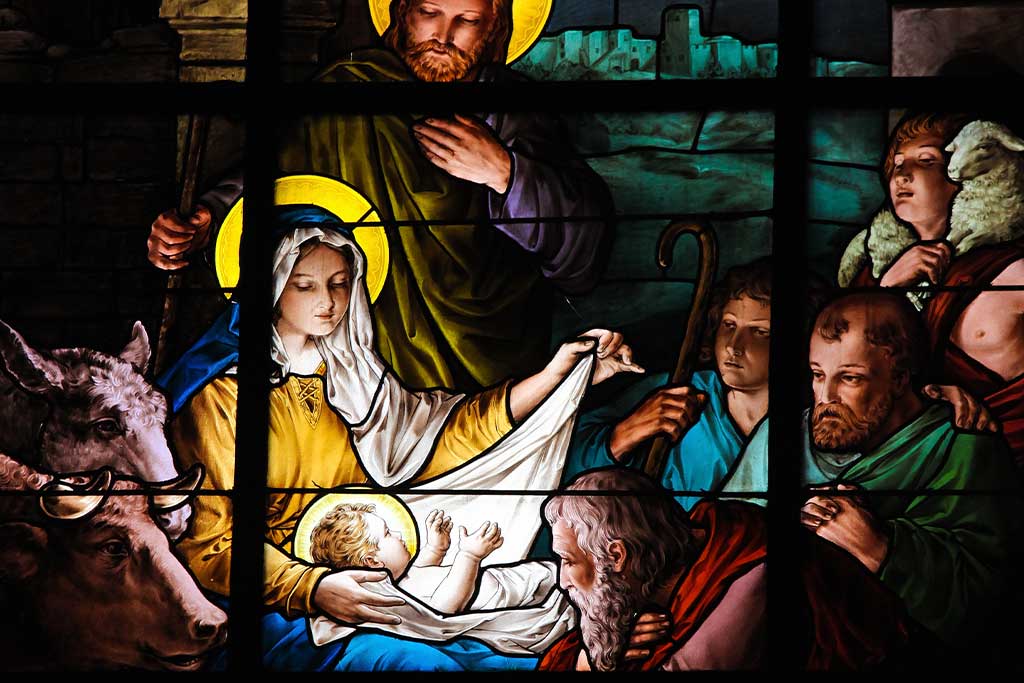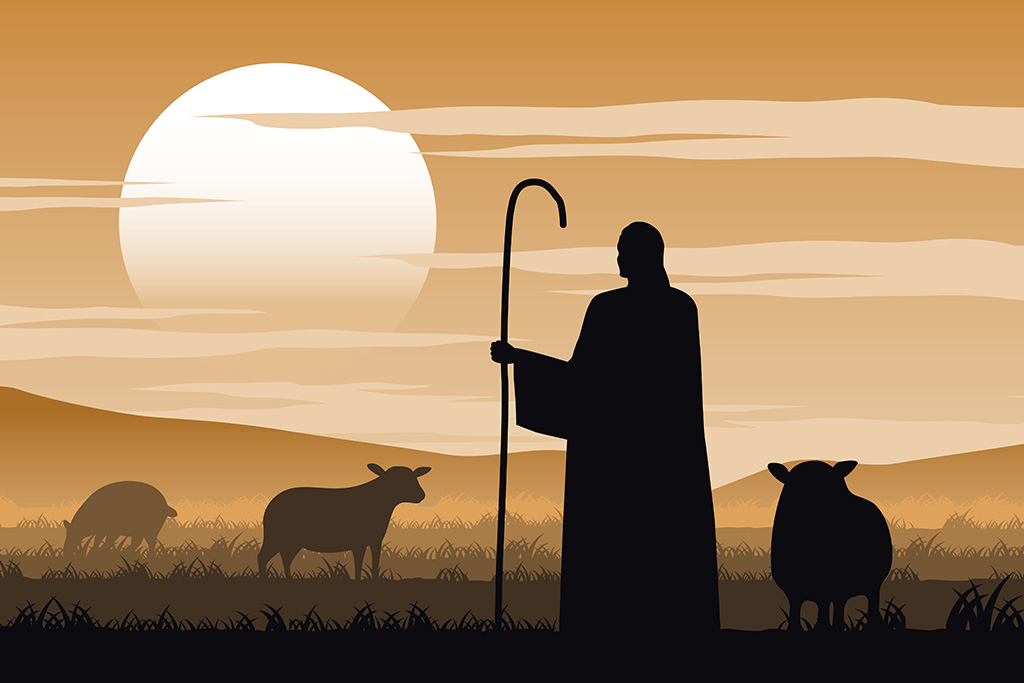
Questions Teens Ask About Jesus’ Birth
Teens have good questions about the Christmas story! In a Q&A format, we’re providing answers to the common questions teens (and adults!) have regarding the prophesy of the coming Messiah and the events surrounding Jesus’ birth.
Why name the child Jesus? (Luke 1:31)
The name Jesus was a sign that God would save his people from their sins (Matthew 1:21). The Old Testament form of the name was Yeshua or Joshua, meaning “Yahweh is salvation.”
Was Jesus a common name in those days? (Luke 1:31)
Yes. Jesus was a very common Jewish name in the first century. The Jewish historian Josephus mentioned more than a dozen people with that name, and approximately 100 tombs have been discovered in Jerusalem inscribed with the name Jesus.
What’s the significance of calling Jesus the Messiah? (Matthew 1:16)
The Greek title “the Christ” and the Hebrew title “the Messiah” both mean “the Anointed One” and refer to the special one sent by God to save people.
How do I know Jesus really is the promised Messiah? (Isaiah 9:2-7)
Isaiah 9:2 – 7 is a promise that one day someone would bring hope to a needy world. To hurting people, this Messiah (or Anointed One) was very good news.
Many other prophecies in the Old Testament also talk about the coming Messiah. How do we know those prophecies about the Messiah point to Jesus? Well, if we compare the prophecies in the Old Testament with the things Jesus did as recorded in the New Testament, we see that Jesus fulfilled every prophecy laid out in the Old Testament about the coming Messiah.
Here are just six of them:
1. Psalm 16:10 and Psalm 49:15 say that the grave would not hold him down (Mark 16:5 – 6; 1 Corinthians 15:3 – 8).
2. Isaiah 50:1 – 6 discusses a “servant” who would remain faithful and describes the treatment Jesus endured before his crucifixion (Luke 22:63).
3. Isaiah 53:5 says he would be pierced for our sins (John 19:34).
4. Isaiah 61:1 says he would preach the good news to the poor (Luke 4:14 – 21).
5. Micah 5:2 says the long-awaited Messiah would be born in Bethlehem (Matthew 2:1 – 6; Luke 2:1 – 7).
6. Zechariah 11:12 foreshadows Jesus’ betrayal for 30 silver coins (Matthew 26:14 – 15).
Because of these and many other fulfilled prophecies, we can have confidence that Jesus is the promised Messiah who came to rescue us from sin and bring us into an everlasting friendship with God.
How was Jesus born of a virgin? (Luke 1:26-38)
How indeed! We know how babies get here, and a virgin birth just isn’t logical. Mary wondered the same thing. When told by an angel she was going to have a baby, she said, How will this be . . . since I am a virgin? (verse 34). Mary knew women didn’t get pregnant without first having intercourse.
The angel told Mary that she would conceive through the power of the Holy Spirit and that her baby would be the Son of God. Believing in God’s power and trusting him, she responded, I am the Lord’s servant . . . May your word to me be fulfilled (verse 38).
The virgin birth is important to our belief in God, Jesus, and the Holy Spirit—the triune God. Jesus was conceived in Mary by the Holy Spirit; therefore, Jesus was both fully human and fully divine. He was perfect (God) and human (born of Mary). That way, Jesus could die for our sins.
The Holy Spirit placed life—divine life—inside the womb of a young, God-fearing virgin girl. And God did the impossible. The Son of God was born to a virgin.
How much did Mary know about Jesus? (Luke 1:46 – 55)
Mary was told that Jesus would be called the Son of the Most High, the Messiah (verses 31 – 35). The later incident recorded in 2:41 – 52 indicates that she didn’t realize Jesus was God in human flesh.
How was Mary “highly favored?” (Luke 1:28)
God chose Mary for a special assignment, and Mary humbly accepted the call (verse 38). She knew her assignment was based on God’s grace to her, not on her merit. Later Jesus said that those who hear God’s Word and obey it are even more blessed than Mary (Luke 11:27 – 28).
In that respect, we all are highly favored by the Lord because he calls each of us to a special purpose in his kingdom. We are blessed when we, like Mary, surrender to his will and obey his call.
Why does the Bible give the genealogy of Jesus? (Matthew 1:1)
Matthew wanted to highlight Jesus’ human birth into a family with traceable roots. A Jewish male always traced his lineage through his father—and Joseph was Jesus’ legal, though not biological, father. The Old Testament prophets foretold that the Messiah would be a descendant of King David’s royal family (Isaiah 11:1; Ezekial 37:24; Hosea 3:5). Since Jesus was a descendant of both David and Abraham, Jesus was the fulfillment of prophecies and of the covenants God had made with them.
When was Jesus born? (Luke 2:1 – 2)
Perhaps a year or so before the death of Herod the Great (Matthew 2:19), which occurred in 4 BC. But it’s difficult to say for certain. The actual date of Jesus’ birth was not a topic of discussion until a few centuries after his death, and that delay has resulted in uncertainty. Also, the Italian monk who devised the Christian calendar (which divides time between BC, “before Christ,” and AD, “anno domini”) complicated matters because he made a significant miscalculation. Anno domini means “in the year of our Lord,” but Jesus was not born in what this monk called AD 1.
Scholars guess Jesus’ birth year was instead between about 6 and 4 BC. Confusion also exists because the only known census during the time of Quirinius occurred too late (AD 6) to be the first census mentioned here. Some suggest that Quirinius possibly was in office for two terms—first from 6 to 4 BC and then again from AD 6 to 9—and ordered a census during each term. If that is true, then the census mentioned here would refer to the one in his first term and Acts 5:37 would refer to the second census.
Was Jesus actually born on December 25? (Luke 2:8 – 11)
No. We don’t know the actual date of his birth. Some say that December 25 was chosen by the Romans to combine this day of Christian celebration with a pagan holiday—observed near the winter solstice—marking the birth of the sun god. Other historians find no evidence to support any tie to a pagan holiday. Early Christians in the second century celebrated Jesus’ appearance at the Jordan River and his baptism by John on January 6. Sometime later they expanded that festival to include Jesus’ birth. Christians called it Epiphany, or “manifestation.”
Why was the birth of Jesus announced to shepherds? (Luke 2:8 – 12)
Shepherds were despised for being unclean by the strict standards of the Jewish law. Also, shepherds had a reputation for being untrustworthy. In fact, a shepherd’s testimony was not valid in legal matters. Yet God chose them to be the first witnesses to the birth of Jesus (verses 17 – 18). Shepherds may have been chosen because they represented all who needed cleansing; with the coming of Jesus that cleansing became available to even those considered the lowest in society.
Who were the Magi? (Matthew 2:1)
Some have suggested that the Magi were a priestly tribe of Medes who lived northeast of Israel near the Caspian Sea. Others say they were Persian elders from Babylon who were schooled in philosophy, medicine and science, and devoted to astrology, divination and the interpretation of dreams. They may have belonged to the same order of astrologers as those who served Nebuchadnezzar and Belshazzar in Daniel’s day (Daniel 1:20; 2:2; 4:7; 5:7).
If astrology was forbidden, why give this special revelation to astrologers? (Matthew 2:2)
God used the knowledge and curiosity of the Magi to lead them to the infant Jesus. God can use all things and all people. In fact, the Magi represent the non-Jewish world and all who search for truth. Matthew’s Gospel often stresses how people of all nations worshiped Jesus as Lord. With this story, God shows right away that Jesus is the King of kings—even the King of the Gentiles.
Was it common to think of the Messiah as being for the Gentiles as well as for the Jews? (Luke 2:32)
This was unusual but not unprecedented. Isaiah had earlier looked forward to the day when nations from around the world would come and worship God in Jerusalem (Isaiah 2:2 – 4; 42:6; 49:6). Later, the idea that Gentiles would receive God’s blessings without having to convert to Judaism was called a mystery (Ephesians 3:1 – 6).
Why we Celebrate Christmas
Celebrating the birth of Jesus the Messiah is an opportunity to pause and give thanks for the love, hope and joy found our Lord and Savior. One of the names for Jesus heard at Christmastime is Immanuel, which means “God with us” (Matthew 1:23). Jesus’ birth, life and death is a message of good news for us. He came to earth and has walked in our shoes. He understands our struggles. The apostle Paul says, Jesus –
Who, being in very nature God,
did not consider equality with God something to be used to his own advantage;
rather, he made himself nothing
by taking the very nature of a servant,
being made in human likeness.
And being found in appearance as a man,
he humbled himself
by becoming obedient to death—
even death on a cross!
Philippians 2:6 – 8
You are loved. That is the true meaning of Christmas.
Drawn from the NIV Quest Study Bible for Teens.

Quest Study Bible for Teens
The NIV Quest Study Bible for Teens answers the most common – and uncommon – questions teens have about the Bible including how God’s Word fits with their lives, their struggles and their world.
Learn More





